As a technical SEO specialist, I’ve worked on a website with over 20,000 pages. Unfortunately, 5,000 of those pages weren’t indexed by Google. There were a few reasons for this, including blocked by robots.txt, excluded by the ‘noindex’ tag, crawled but not indexed, not found (404), and a canonical tag issue.With My 2.5 year’s proven experinced in SEO I have resolved their issue from their website.
Free Audit With SEMrush
Project.
I have work
Hire a Technical SEO Specialist to Fix Core Web Vitals, Indexing & Site Structure
Your website loses valuable leads and increases bounce rates with every second it takes to load. My decade-long experience as a technical SEO specialist shows how these technical problems quietly hurt businesses’ profits. Google’s data reveals that a 10-second page load speed can drive up bounce rates by 123%.
Poor technical SEO creates problems way beyond the reach and influence of slow loading times. Your website’s pages might not even show up in Google search results. On top of that, it takes just a one-second delay in mobile loading time to drop conversion rates by 20%, reduce page views by 11%, and lower customer satisfaction by 16%. Technical optimization is vital now – not optional. Search engines drive over half of a website’s organic visitors, with 93% of web experiences starting there.
Search engines can’t access and index your pages properly when crawl errors exist, while duplicate content weakens your search rankings. Perfect keywords won’t help if search engines can’t properly index your site and understand its value. My expertise as a technical SEO specialist is significant here – I fix core web vitals, resolve indexing issues, and optimize site structure to turn these hidden problems into ranking opportunities.
Why You Need a Technical SEO Specialist
Technical problems with your website can severely affect your search visibility. Many businesses don’t notice the warning signs until their traffic takes a nosedive. A technical SEO specialist on your team makes a real difference.
What Is Technical SEO and Why It Matters
Technical SEO optimizes your website’s infrastructure. This helps search engines crawl, render, and index your content efficiently. On-page SEO deals with content and keywords, while technical SEO builds the foundation that supports your entire online presence. Your compelling content won’t reach your audience without proper technical optimization.
How search engines crawl and index your site
Search engine bots find, process, and catalog web pages. These bots follow links, read code, and assess site performance to determine your pages’ rankings. Your content becomes invisible to search engines when technical barriers block this process. Potential customers won’t find you.
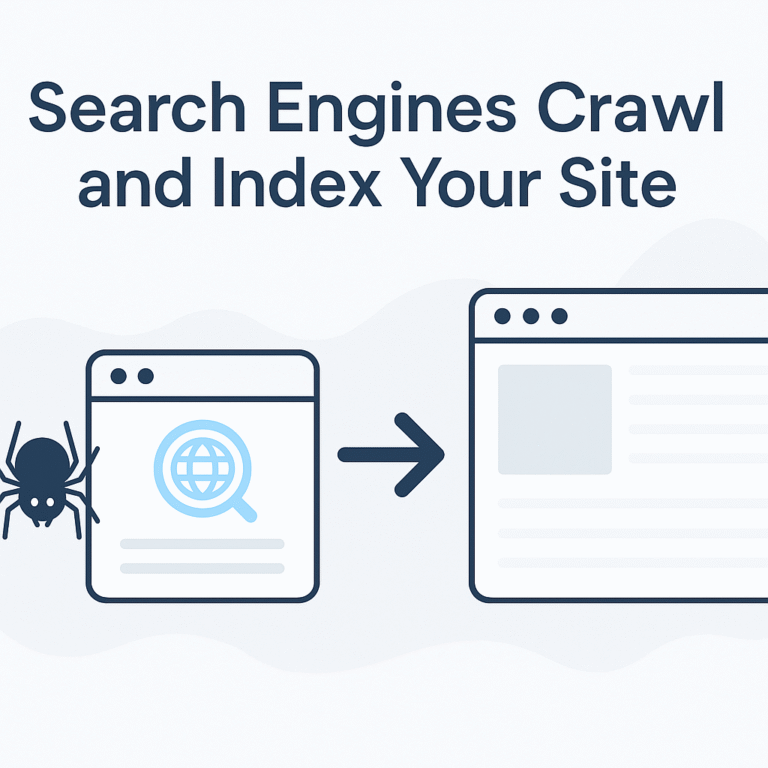
Signs Your Website Has Technical Issues
Pages not indexing
Google might not index your pages despite your submission efforts. This red flag usually points to incorrect robots directives, rendering issues, or weak internal linking structures that leave pages disconnected.
Slow mobile load times
Your rankings suffer from mobile performance issues because Google uses mobile-first indexing. Search engines view slow-loading pages as poor quality, and users hate them too.
CLS or LCP problems
Core Web Vitals metrics like Cumulative Layout Shift (CLS) and Largest Contentful Paint (LCP) measure user experience factors. Low scores show stability and speed issues that damage both rankings and conversions.
Crawl budget waste
Search engines give each site limited resources (crawl budget). Your important content suffers when this budget gets wasted on duplicate or low-value pages. This leads to reduced discovery and indexing.
Duplicate or non-canonical URLs
Multiple URLs that point to similar content create confusion for search engines and weaken ranking signals. You compete against yourself in search results without proper canonical tags or redirect strategies.
Fixing Core Web Vitals: Speed, Stability, and Mobile Experience
Core Web Vitals now play a crucial role in determining your search rankings. Google’s algorithms put user experience first, and knowing how to optimize these metrics gives businesses a competitive edge.
Understanding Core Web Vitals metrics
Three key performance metrics make up Core Web Vitals and measure ground user experience:
- Largest Contentful Paint (LCP): Measures loading performance - you need to keep it under 2.5 seconds to give users a good experience
- Interaction to Next Paint (INP): Measures responsiveness - keeping it under 200 milliseconds creates optimal user interaction
- Cumulative Layout Shift (CLS): Measures visual stability - a score below 0.1 prevents frustrating layout shifts
- These metrics show how users notice your site's performance and influence whether they convert or leave.
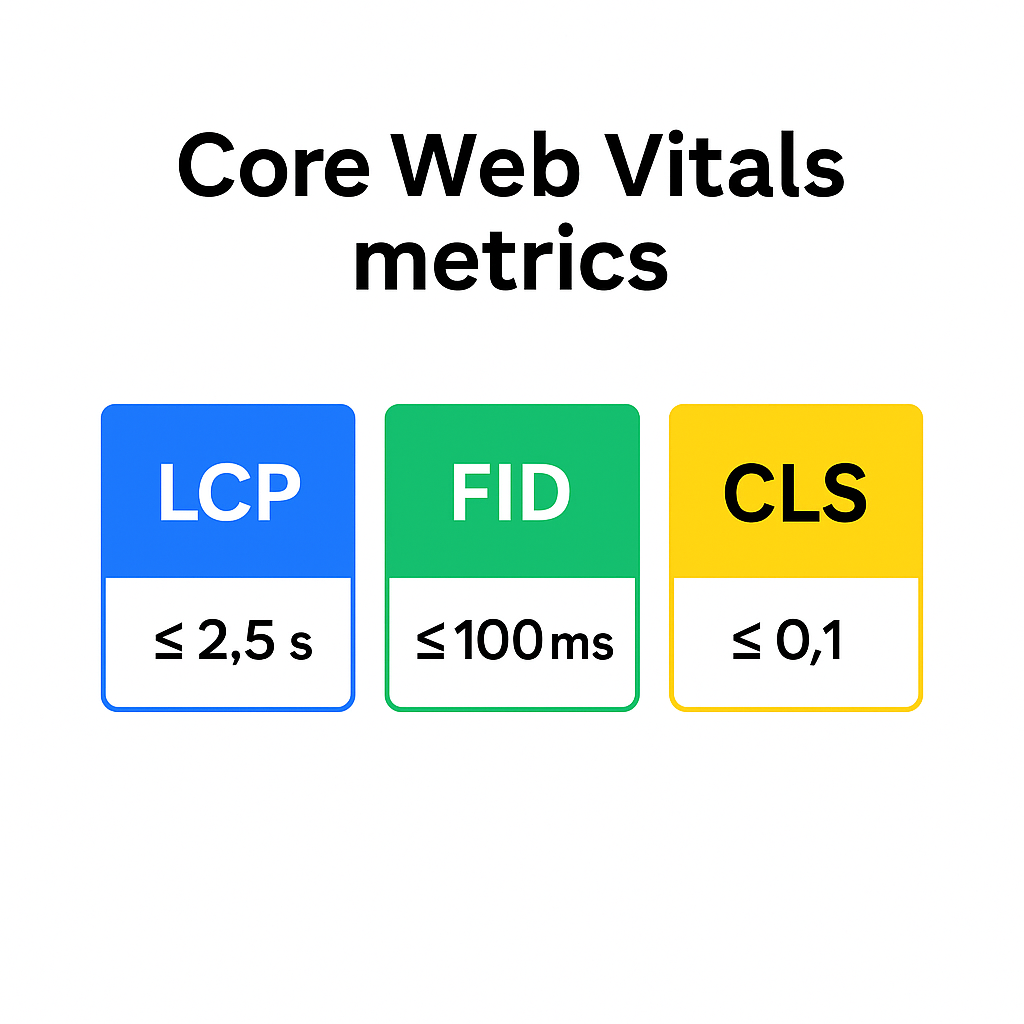
How slow load times hurt conversions
Poor performance hits your bottom line hard. Your conversions drop 7% with each second added to page load time. Pages that load in 2.4 seconds convert at 1.9%, but this drops to less than 1% when load times reach 4.2 seconds.
Big brands have seen amazing results from speed improvements:
- Walmart got 2% more conversions for each second they saved
- COOK's conversions jumped 7% when they cut load time by just 0.85 seconds
Tools to measure and improve site speed
Technical SEO specialists use these tools to find and fix Core Web Vitals problems:
- Google PageSpeed Insights: Shows field and lab data with practical recommendations
- GTmetrix: Breaks down performance issues with detailed file-level analysis
- Chrome DevTools: Helps find slow interactions and JavaScript performance problems
- Screaming Frog: Analyzes site structure issues that could slow things down

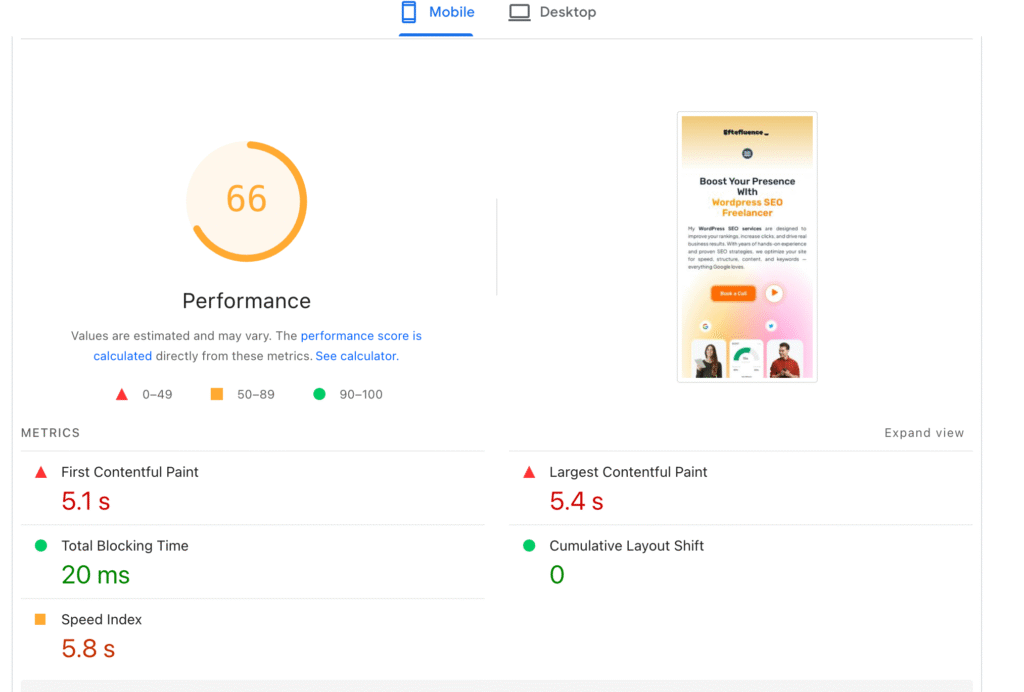
Mobile usability and responsive design
Google’s mobile-first indexing makes mobile optimization essential. Your site needs responsive design to work on all screens by using:
- Flexible layouts with relative sizing instead of fixed pixels
- Fluid images that scale within their containers
- Media queries that adjust layout based on screen size
Sites that take more than 3 seconds to load lose over half their mobile users.
Solving Indexing and Crawl Issues That Hurt Rankings
SEO efforts can fail silently due to invisible crawl and indexing issues, even with perfect content and keywords. My decade of technical SEO work has shown these backend problems repeatedly holding back websites that seem well-optimized.
Google Search Console
Let me short out From Google Search Console
Audit
I will Audit with SEMrush For your website and let's see the Site Score.
Resolved
On Strategy And Perfect Strategy can be Effective for in quick
Let's short out from
Search engines might fail to access your content due to several critical crawl errors:
- DNS errors occur when crawlers cannot communicate with your server due to DNS configuration issues
- Server errors (5xx) indicate Googlebot couldn’t access your URL because the request timed out or your site was busy
- Redirect errors happen with redirect loops or chains exceeding five redirects
- Soft 404 errors occur when pages return a 200 OK status instead of properly signaling their absence
Server logs and specialized tools help detect these problems. The logs show which crawlers visit your site, how often they come, and which pages they request.
Fixing noindex, robots.txt, and sitemap issues
Indexing failures often stem from wrong implementation of noindex tags or robots.txt rules. Note that noindex needs implementation either as a meta tag or HTTP response header. Google no longer supports using it in robots.txt.
Improving crawl budget and internal linking
Crawl budget—Google's allocated resources to crawl your site—is vital for JavaScript-heavy websites with thousands of pages. JavaScript content takes 9X longer to crawl and index, so managing crawl budget becomes critical. A well-laid-out internal linking structure creates a roadmap that helps search engines find important pages first. This helps Google understand page relationships and prioritize pages closer to your homepage.
Using Google Search Console and Screaming Frog
Google Search Console tools are a great way to get diagnostics. The Index Coverage report groups pages as Valid, Valid with warnings, Excluded, or Error. You can track crawl frequency and spot availability issues through the Crawl Stats report. Screaming Frog SEO Spider works alongside GSC to audit common SEO issues like broken links and server errors. The tool exports key onsite SEO elements and finds problems like redirect chains, duplicate content, and missing canonical tags.
Duplicate or non-canonical URLs
Multiple URLs that point to similar content create confusion for search engines and weaken ranking signals. You compete against yourself in search results without proper canonical tags or redirect strategies.
Tools Plugin and CMS I am Expert
I am an expert in Tools Plugin and Content Management Systems (CMS), possessing extensive knowledge and experience in these areas. My expertise covers various aspects of Tools Plugin and CMS, enabling me to deliver effective solutions and support.
WordPresss
I have over two years of experience in server development and maintenance.
Google Analytics
I have a pro at managing and improving CTR trends in user engagement, and info like demographics.
Rank Math
I’ve got my hands on this SEO Plugin and I’m certified!
Google Search Console
I’m an expert in GSC account management and have successfully resolved Core Web Vitals issues.
Yoast SEO
I have optimized titles, descriptions, and content with AI, so you can focus on growing your business
Google Ads
Reach your target audience with Google Ads – an easy, cost-effective way to promote your business online and drive more traffic, leads, and sales
Results From My Clients Case Study Snapshot Daveockop
Strong technical SEO delivers big results: a client saw 561% traffic growth in nine months, others improved rankings, revenue, and site health dramatically. Even small businesses like a bakery gained 214% traffic in four months. Want similar success? Book a free SEO audit today.
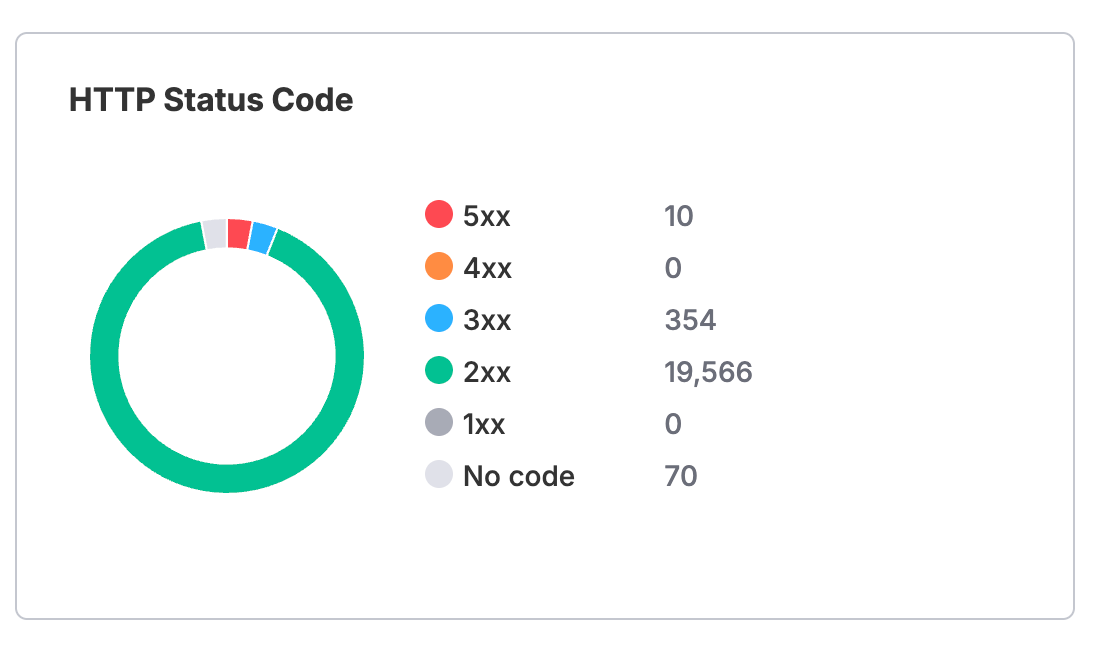

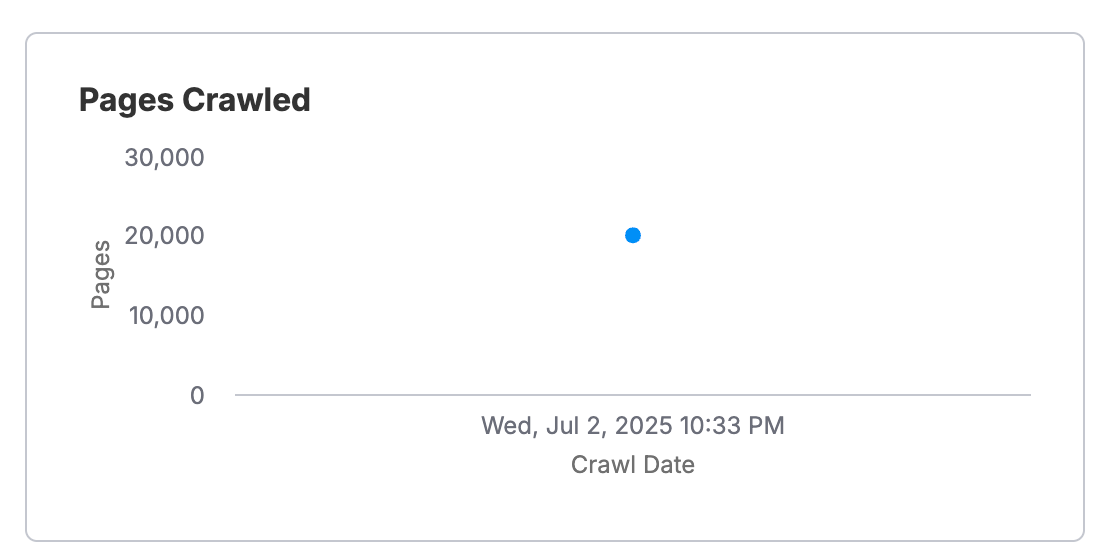

SEMrush Short Out Score 80-90%
Work history
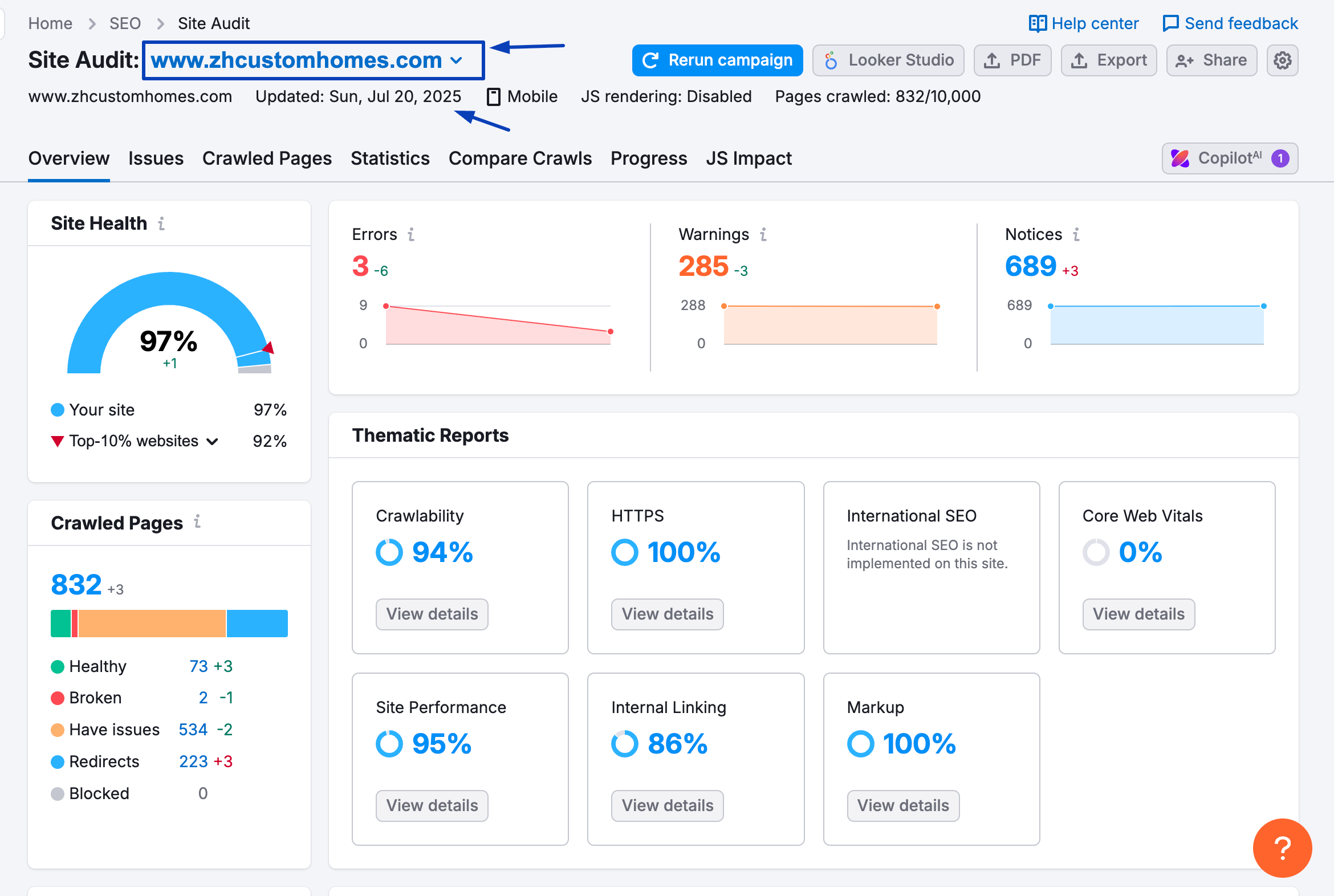
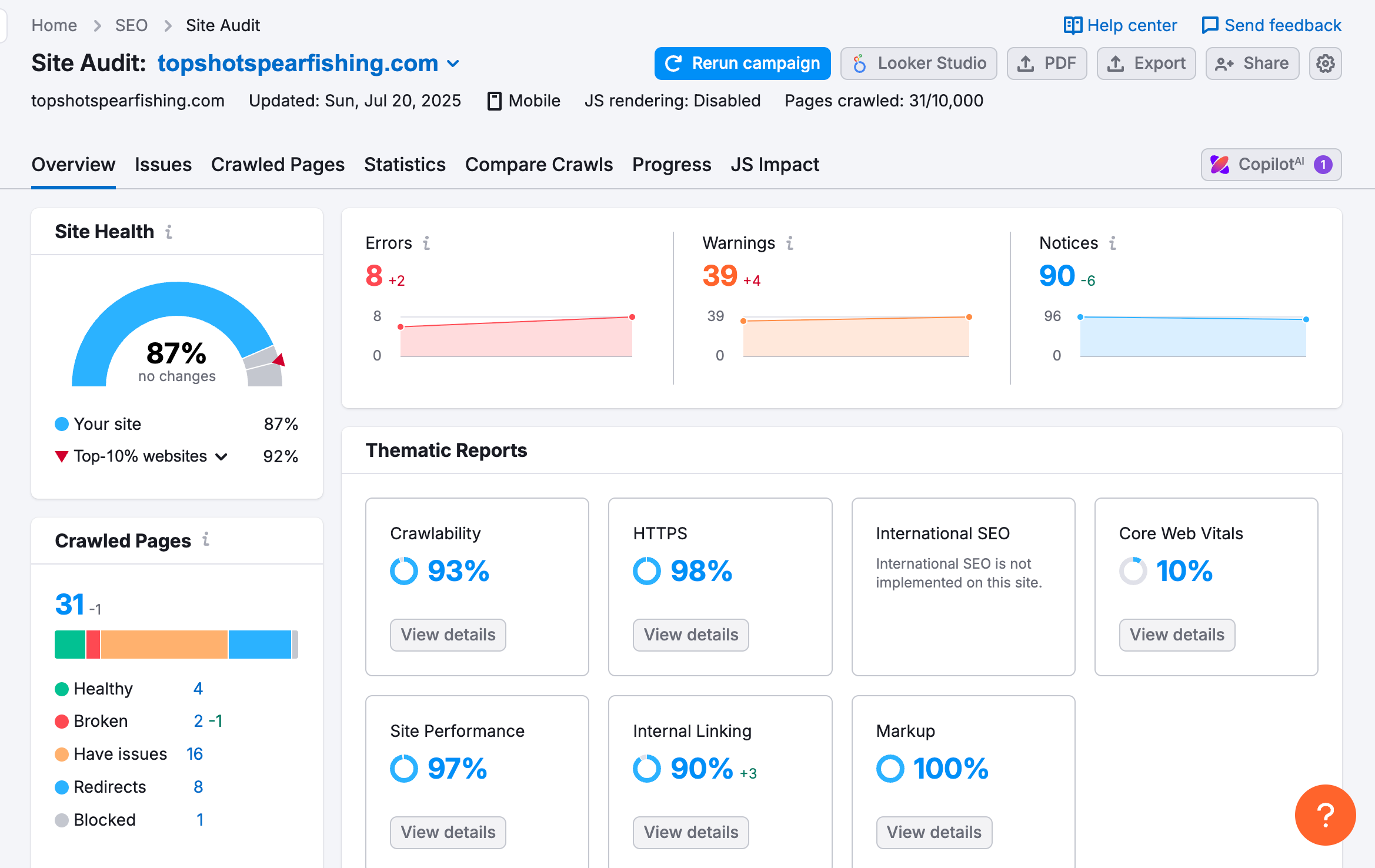
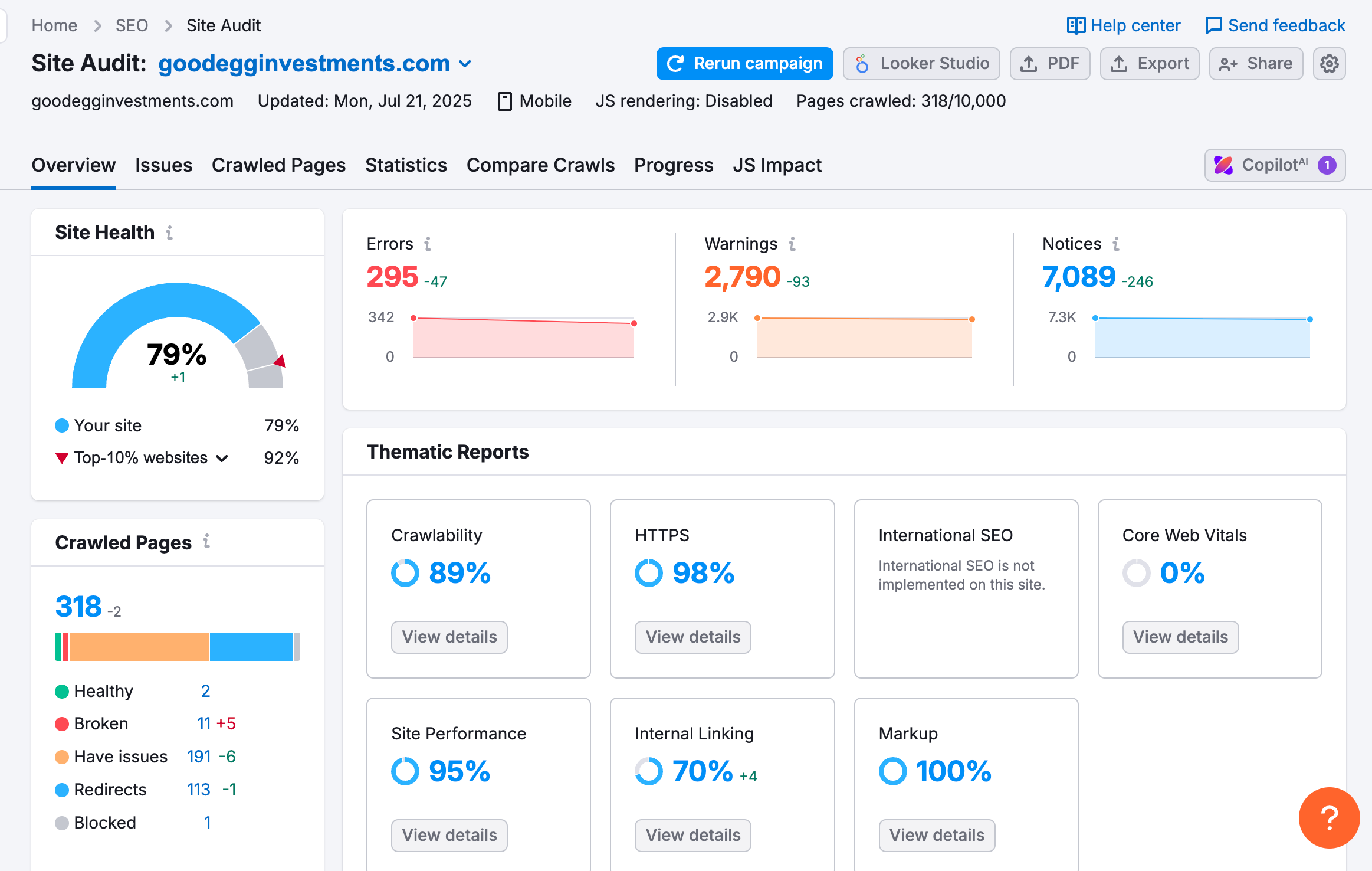
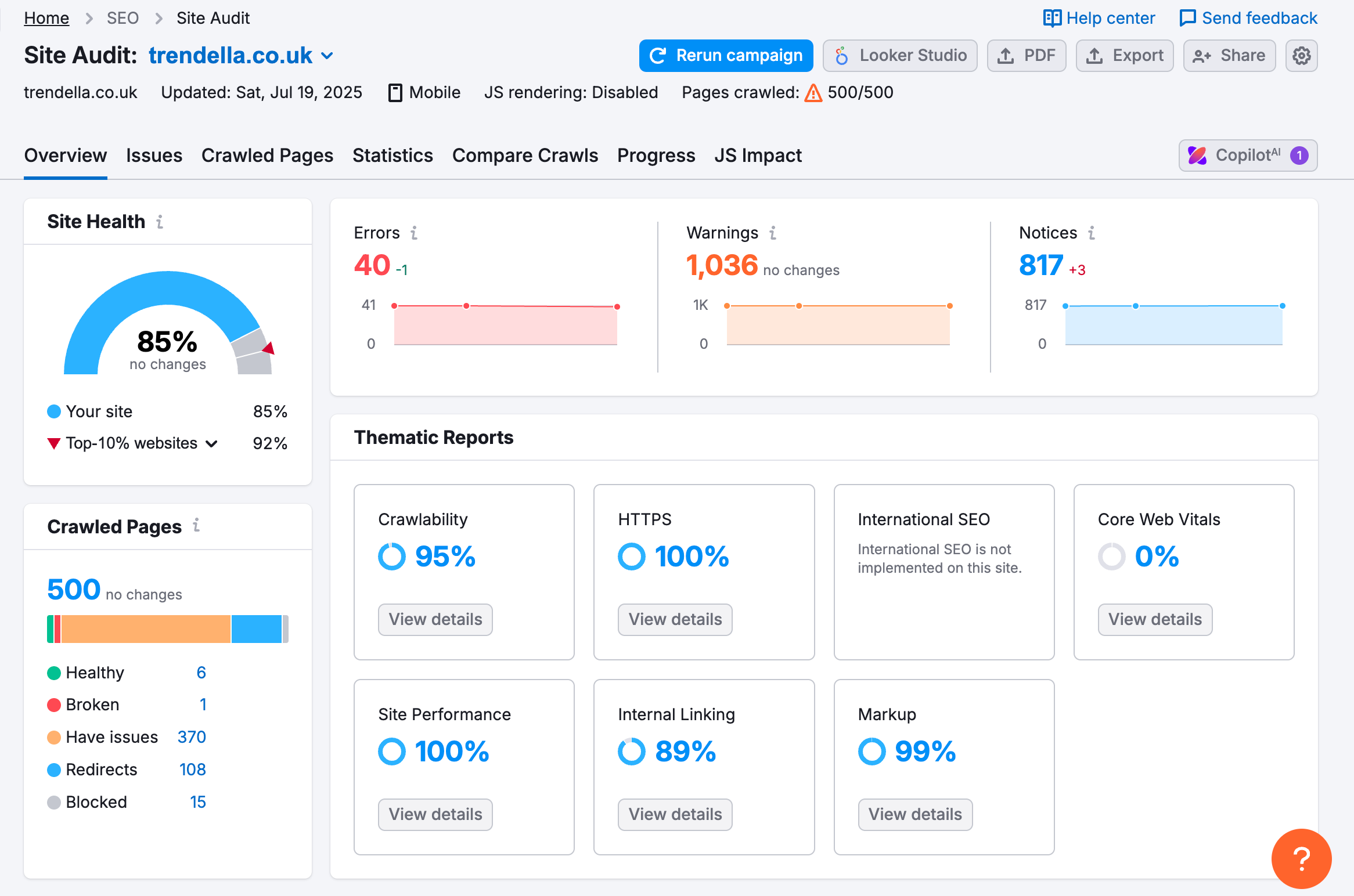
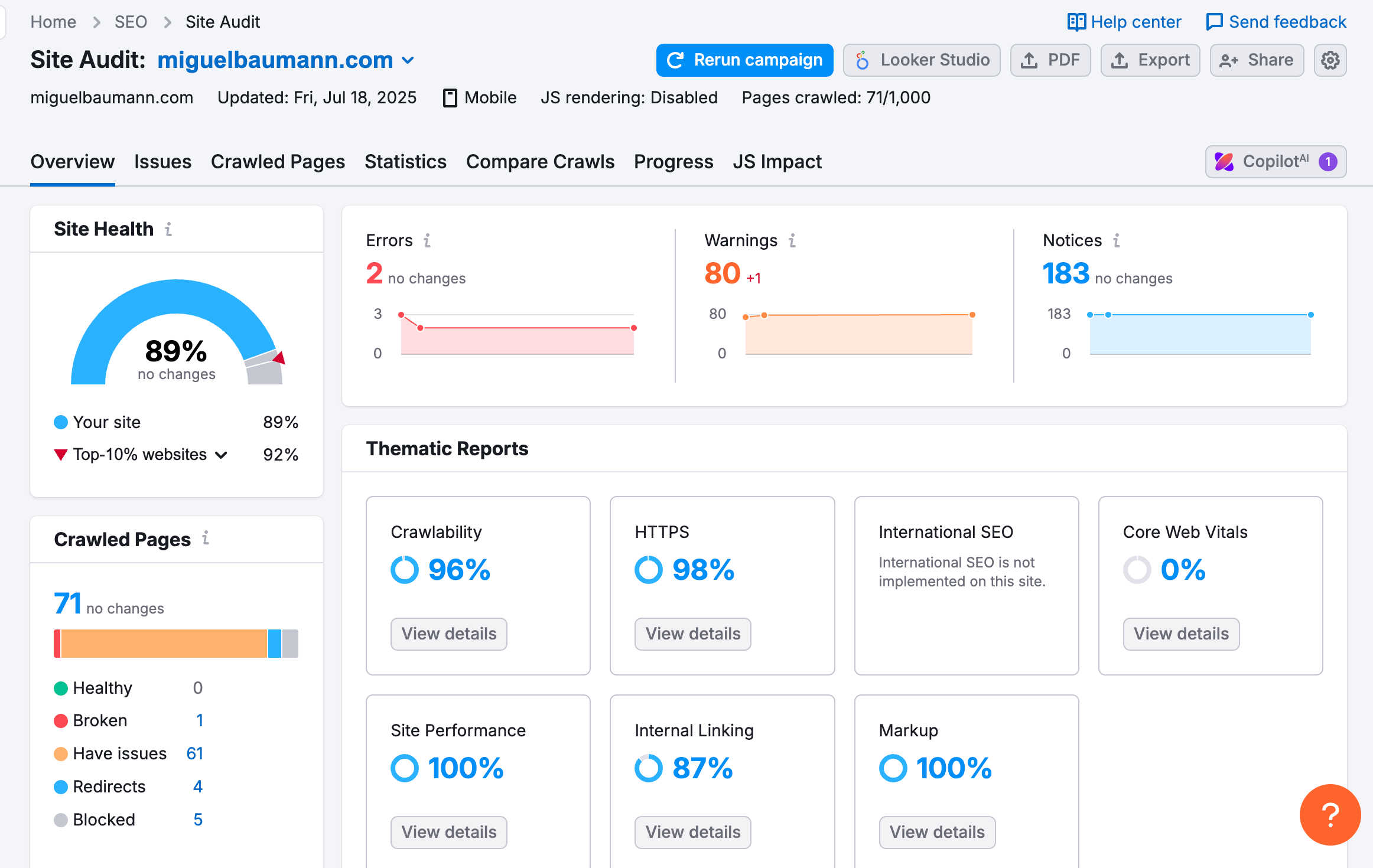
Why Choose MY Technical SEO Services?
I started my SEO adventure with a sense of wonder and enthusiasm, learning from real projects and making honest mistakes along the way. As I progressed, I became proficient in using tools like SEMrush, Ahrefs, and Google Search Console. Now, I follow a data-driven and honest approach, prioritizing delivering genuine and long-lasting results for my clients through strategic planning and continuous improvement.

Client Testimonials that Inspire Growth
Hear what my clients have to say about working with us. Real stories, real results — showcasing the impact of our SEO strategies and the trust we build with every project.
Good and clear requirment easy to work
Head Marketing
Amazing job, perfect execution and very easy to deal with.
Manager Spinfluence
it was great to work with. Clear communication and provided great work.
TechHouse Agency
Great team and CLEAR REPORT That make sense highly recomand
CEO Newsportslinc
Frequently Asked Questions
Here are some common questions our clients ask before starting a project, and we’ve answered them honestly.
Still have questions?
Can’t find the answer you’re looking for?Please chat to our friendly team!
A technical SEO specialist focuses on optimizing the infrastructure of a website to improve its search engine visibility. They handle tasks such as improving site speed, fixing indexing issues, optimizing site structure, implementing structured data, and ensuring proper crawlability. Their goal is to create a solid technical foundation that allows search engines to efficiently crawl, render, and index a website's content.
Core Web Vitals are crucial for SEO as they directly impact user experience and are used by Google as ranking signals. These metrics measure loading performance, interactivity, and visual stability of web pages. Websites that score well on Core Web Vitals tend to rank higher in search results, as they provide a better user experience. Improving these metrics can lead to significant gains in search visibility and user engagement.
We offer transparent, value-based pricing with no hidden fees. You pay for expert work tailored to your needs — not bloated packages or one-size-fits-all plans.
Ideally, websites should undergo technical SEO audits on a monthly basis to catch and address issues promptly. However, at a minimum, quarterly audits are recommended to ensure ongoing technical health. Regular audits help identify new problems that may arise due to site updates, algorithm changes, or other factors, allowing for timely fixes before they significantly impact rankings.
Still have questions?
Can’t find the answer you’re looking for? Please chat to our friendly team!
Book a Free Technical SEO Audit
Finding what holds your website back is the first step toward SEO success. Business owners are often shocked when they learn about technical issues that silently undermine their digital presence. I’ve seen this repeatedly in my decade of experience.







